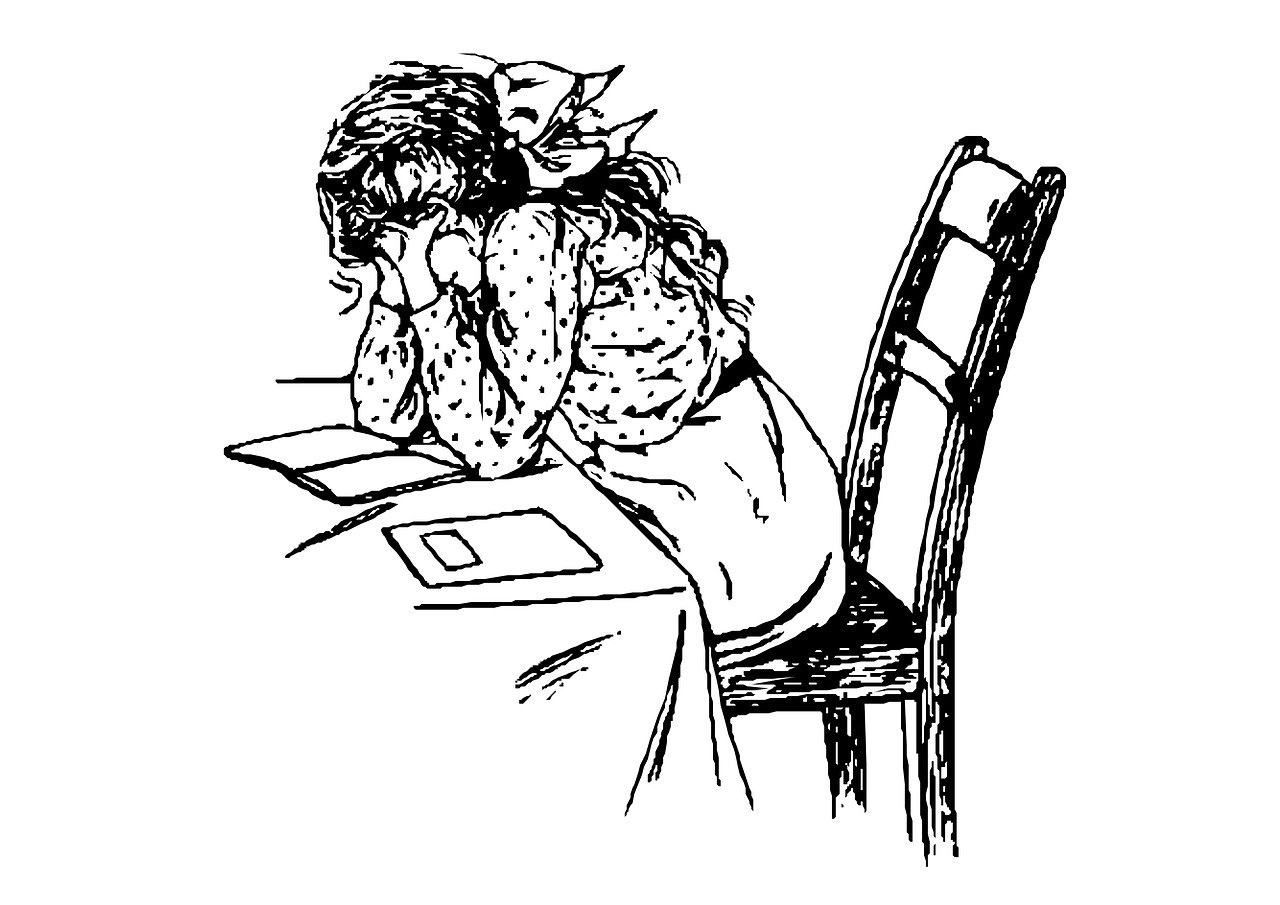
Not many people associate Charles Dickens with the word grief. Social mobility, love, poverty, and injustice are themes that appear more often in connection with his works. However, while reading two of his literary masterpieces Great Expectations and The Chrismtas Carol this year, I found the theme of grief woven between his lines. Hidden, perhaps, beneath the layers of self-deception — but present.
With his compelling character arcs and captivating plots, Charles Dickens has earned fame world-wide. His wit reminisces that of Jane Austen, and his words paint pictures of social class in 18th century England. Yet, despite this, Dickens’ life was not without despair and isolation, and he often integrated fragments of his past into his stories.
Although Great Expectations reveals the corruption of wealth and The Christmas Carol conveys a spirit of generosity, the characters in both novels undergo trials and changes in order to meet this conclusion. Grief is the key that unlocks the truth to them. Or, in some cases, the absence of grief keeps them in the dark.
“Heaven knows we need never be ashamed of our tears, for they are rain upon the blinding dust of earth, overlying our hard hearts. I was better after I had cried, than before–more sorry, more aware of my own ingratitude, more gentle.” ~ Pip, Great Expectations
One of the greatest examples of the effect of grief’s absence epitomizes in the form of Miss Havisham, in Great Expectations. Miss Havisham, Pip’s wealthy, aged neighbor, lives in the past. She wears the faded wedding dress she wore on the day of her marriage when she was abandoned at the altar. Devoid of light, every clock inside her crumbling mansion is pointed at 8:40 (the time she received her fiance’s letter of betrayal). She’s imprisoned in “what could’ve beens and what will never bes,” unable to escape the cage she’s built around herself.
Yet, though her clocks remain the same year after year, her body ages and her bridal dress withers. Signs pointing to the truth she avoids: time cannot be paused.
Rather than accept the truth and allow grief’s healing hands to close her scars, she wallows in the past. In her self-misery, she projects her troubles onto others. By bringing up Estella, the main character’s love interest, as a disdainful heart-breaker, she numbs Estella’s soul to love.
Because she has not grieved over the past, Miss Havisham is unable to feel compassion for others. She lived each day in the debris of her past, standing over the broken shards of her heart… Enveloped by her misery and desire for revenge, she could not understand love and regret her actions. Grief was the only remedy left to break free from the cage of the past and see her life in the right light. But she shrank from grief like she shrank from the daylight that creeped through her curtains.
Similar to Miss Havisham, Ebenzer Scrooge, the old grouch inhabiting The Christmas Carol, lived a life of pain and isolation. Feeling the blow of rejection at a young age, Scrooge distances himself from humanity. If children beg, he growls. If friends knock, he locks the door. If Christmas calls, he spouts “Bah Humbug!” But beneath his chilling exterior lies a wound. A wound that, though covered by pride, pulses with loneliness.
The Ghosts of Christmas past, present, and future come to penetrate this wound.
As Joy Clarkson remarks in a tweet on The Christmas Carol, “Scrooge’s redemption begins when he sees himself as a child, and weeps over how lonely and strange he felt, how abandoned he was. In admitting our own griefs, we are more able to be tender-hearted. Indifference to the pain of others, is often indifference to our own pain.”
As he journeys through time, revisiting past memories (both joyful and sad) he’s struggled to forget… Something changes in Scrooge’s heart. Unable to stifle it any longer, Scrooge breaks down into tears, allowing the grief of his past to wash over him. Through the Ghosts’ visit, he feels, he sees, he understands, and he softens. Only by experiencing heart-ache firsthand – not pushing it away – is Scrooge able to open his heart to others. To empathize. To care about souls other than himself.
Even in this festive season of joy, grief is necessary. It’s necessary to understand ourselves and others. Twenty-twenty has been a hard year — a year worthy of lament. In the midst of the twinkling lights and quiet traditions, we must not forget the millions of souls out there in the dark. Scrooges and Havishams, lost in the bleak effects of reality… Struggling through a cold winter… without the warmth of love and the light of our Star.
“No one is useless in this world who lightens the burdens of another,” Dickens remarks.
This is a season to remind ourselves and others that grief is raw and real… But so is hope.
Have you read any of Charles Dickens’s works? What are some themes you found in them? What do you think of Scrooge and Miss Havisham? What are your thoughts on the topic of grief? Let me know in the comments! I can’t wait to hear from you.
Merry Christmas! God bless us, every one!
Abigail

6 responses to “The Ghost of Christmas Grief”
Hi Abigail,
I enjoyed reading your good and well-written thoughts just now. I confess that I think The Tale of Two Cities is the only unabridged Dickens novel I remember reading, but I’ve read abridged versions of some other, including the two you mentioned. Dicken lived during a fairly dark period for the “lower class” in England and his writing certainly reflects that. Do you know if the injustices and abuses he exposed led to any social reforms, Abigail? I certainly hope so.
Keep writing!
Love,
Aunt Beth
Thank you so much! (: Reading any of his books (abridged or unabridged) is better than reading none! Hmm, good question… I’m not sure, but it sounds like a good topic to research. I hope so, as well. Thank you for reading, and blessings to you! ❤️
What a wonderful post, Abbi! I haven’t read any of Dickens’s works yet, but I really want to! I hope you have a great Christmas!
Yes, Dickens was a genius… I’d totally recommend reading his novels when you get a chance. Thank you for reading, Bella! (:
I know I have read some Dickens years ago. What really struck me were your observations about grief and moving forward. There’s nothing that will ensure personal growth anymore than pain and grief if you let it. I hadn’t thought about the characters that you pointed out how they refused to except their grief and go through it in order to grow. It seems many times we lead the life of avoidance of pain but once we walk through it’s beautiful on the other side.
Oh, your words are so lovely, Aunt Judy! So precious and soul-filling. Thank you for taking the time to share this. (: Very true and very real. Merry Christmas!